Biola University welcomes 18 new faculty members for the 2025-2026 academic year. The new faculty joined Biola’s Rosemead School of Psychology, School of Fine Arts and Communication, School of Humanities and Social Sciences in the Torrey Honors College, School of Science, Technology and Health, Snyder School of Cinema & Media Arts and Talbot School of Theology.
Biola’s newest professors are each passionate about helping their students grow in their faith along with their academics. They vary in expertise, ranging from the biological sciences to philosophy and apologetics. Get to know Biola’s new faculty below and read their thoughts on the value of Christian higher education and the significance of a strong foundation in their specific fields.
Rosemead School of Psychology
.jpg)
Associate Professor of Psychology
Dr. Jee Young Noh is a professor of psychology at Biola University, with her primary interest in children's moral development. She is interested in how children's morality develops over time and how families, culture and church communities influence the developmental trajectory. Noh has published her work in various journals, including the Journal of Child and Family Studies, Journal of Experimental Child Psychology, and the Journal of Cross-Cultural Psychology. Prior to joining Biola, Noh worked at California Baptist University.
“Developmental psychology looks closely at how one develops over time,” said Noh. “Having a strong Christian foundation helps me not only understand how children grow cognitively, socially and emotionally, but also to consider why and how growth happens within God’s design. This perspective has given me the opportunity to unveil how wonderfully God has created us in his image.”
School of Fine Arts and Communication
.jpg)
Visiting Assistant Professor of Digital Media
Alexandria Arrieta is a Visiting Assistant Professor of Digital Media at Biola University who studies the internet, popular music and culture. Her research is particularly focused on viral short-form video platforms like TikTok and music creator labor. She also studies the impact of generative AI within creative industries and communities. Her writing has been published in the Journal of Popular Music Studies, the International Journal of Communication, and Global Hip Hop Studies. Arrieta frequently works on research and consulting projects in music and tech. She has held fellowships with Warner Music Group, where she worked on initiatives for emerging pop artists signed to Warner Records, and more recently, with the Latin Recording Academy, where she conducted a perception study on behalf of the organization. She completed her Ph.D. and M.A. in Communication at the USC Annenberg School for Communication and Journalism and her B.A. in English with honors at Stanford University. She is active as a singer-songwriter and music producer who has toured across the West Coast and whose music has been played on international radio.
“It’s critical for Christians to have a deep understanding of new digital developments, including viral social media platforms, online creators and new generative AI applications. There is a tremendous opportunity to use new online platforms to make a positive impact and share messages of hope. There is also a real need for people of faith to bring thoughtful insights into ongoing discussions about artificial intelligence, spirituality and what it means to be human,” said Arrieta. “In addition to cultivating technological and creative proficiency with new tools, I’m excited to encourage students to think critically about how constant digital connectivity affects our spiritual lives and communities, and to learn how to use digital expertise and influence in a way that is guided by Jesus and by His love for people.”
_(1).jpg)
Professor of Design
Christian Perez-Morin is an artist native to Los Angeles. His practice consists of drawing, painting and graphic arts. His work in printmaking and painting explores gestural abstraction and floral design elements that are deconstructed into whimsical and pastoral compositions. He has designed books, brands and letterforms in collaboration with advertising agencies, companies and cultural institutions. He received a BFA from ArtCenter College of Design and an MFA from Cranbrook Academy of Art. His work has been recognized by New American Paintings, AIGA 50 Books/Covers, STA 100, Graphis and GD USA. He has been an arts educator for 12 years, having taught at ArtCenter, CalArts, Biola University and CalState LA. In his spare time, he loves listening to Bill Evans records, finding new coffee shops with his wife and tinkering with his motorcycle.
“A school like Biola creates a sacred space for students. Each major and discipline taught here is always in relation to serving a higher purpose and calling. At the same time, it’s a place that upholds rigor and excellence,” said Perez-Morin. “The arts and creative industries both need Christians that are talented, hard-working and spiritually led in all they do.”
School of Humanities and Social Sciences
.jpg)
Assistant Professor in the Torrey Honors College
Dr. Christie George is a musicologist and philosopher of aesthetics, holding a doctoral degree from Claremont Graduate University. Her research focuses on the linguistic and philosophical implications that attend the concept of “Taste” as it is presented in 18th century philosophical and musical treatises. Since her initial dissertation, her work has expanded into the areas of phenomenology and theological aesthetics, with special focus in the work of Jean-Luc Marion. She has written and presented on topics including taste, the philosophy of art, German Idealism, the role of the self in experiences of worship and the phenomenology of Jean-Luc Marion at conferences in the U.S. and Europe.
“To regard education as a sacred project is to maintain its value not merely as a mechanism for the enrichment of the mind, but especially for the health of the soul. If this is the basis from which one enters the project of teaching, it becomes rife with meaning, despite the many and diverse mundanities,” said George. “I am grateful to be joining an institution where a vision of eternal impact is shared by so many — where we who teach are also learning to love our students and our Creator better, even while we encourage the same.”
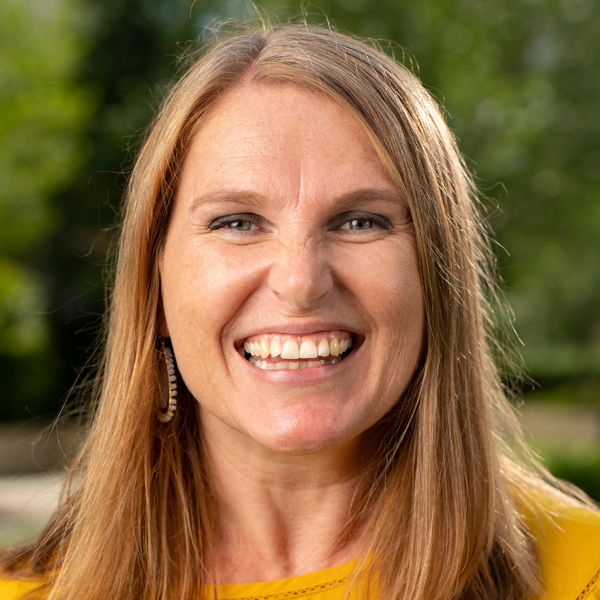
Assistant Professor in the Torrey Honors College
Si√¢n Draycott grew up in Wales and lived in several different cultural contexts before settling in California with her family. She graduated from the University of Oxford with an M.A. in Theology. An M.A. in Classical Studies from the Open University (UK) developed her research in Greek tragedy and comedy seen in the relationship between Euripides and Aristophanes. Draycott is completing her Ph.D. dissertation at Talbot School of Theology in Educational Studies. She is a proud fan of Welsh rugby, loves hiking and reading her favorite authors, including Homer, Euripides, Augustine and O'Connor. She is a regular contributor to the Biola CCCA Advent and Lent Project devotionals.
“Having a strong Christian foundation in relation to studying and discussing great books changes everything. It puts the focus on the pursuit of goodness, truth and beauty with an end goal of becoming more Christlike instead of a goal of self-actualization,” said Draycott. “There is a temptation to see education as something to be consumed, especially when students pay a high financial cost for their degrees, however, an acquisition of virtue cannot be purchased, it must be discovered over time, in community and under the authority of Christ.”
School of Science, Technology and Health
.jpg)
Assistant Professor of Occupational Therapy
Crystal Ricciardi is an alumna of Biola University (’98) and has been an occupational therapist for almost 25 years and a functional nutritionist for the past few years. She graduated from Biola University with her B.S. in Sports Physiology, M.S. in Occupational Therapy from the University of Puget Sound and M.S. in Human Nutrition and Functional Medicine from the University of Western States. She has worked with all ages in the area of health and wellness. She has started multiple programs and clinics throughout the years focusing on community mobility, intergenerational programs, sensory integration and aging gracefully. She recently moved back to La Mirada from Seattle to teach in the graduate level for occupational therapy.
“All people are made in the image of God. Recognizing this as we learn to apply therapeutic principles in occupational therapy, will make more compassionate and competent therapists,” said Ricciardi. “Occupational therapy is a unique field that allows believers to interact and interweave God's story into a patient's story. Practicing being present with Jesus allows presence when entering into people's lives.”
.jpg)
Academic Fieldwork Coordinator
Dr. Dan Martin, originally from Indiana, studied Psychology and was a member of the Torrey Honors Program at Biola University. He earned his master’s degree in occupational therapy from Elmhurst University and his doctorate from New York University, where he focused on sensory processing disorder, pediatric care and leadership skills. Now serving as a coordinator and instructor, he connects students with hands-on clinical experiences and teaches with a focus on pediatric care and professional development.
“Christianity enhances every field. It is as though a new layer of depth is added, because rather than pursuing the profession for its own sake, the vocation becomes a form of ministry. This mindset has already been energizing in the first chapters of Biola's newly launched Master's of Occupational Therapy program, and since occupational therapy is already based on principles of care and spirituality, the integration of Scriptural principles has been very smooth,” said Martin. “As we have been sharing with the students, Christians can lead in their respective fields in not just offering excellent care, but also displaying the fruits of the Spirit (i.e., love, joy, peace, patience, kindness, goodness, faithfulness, gentleness, and self-control). More so, as tough times occur, we have also reminded students about the blessed opportunity to rest in God and what that looks like in learning and growing now, and as a future practitioner.”
Assistant Professor of Communication Sciences and Disorders
.jpg)
Associate Professor of Biological Sciences
Esther Choi, Ph.D., is a microbiologist specializing in microbial pathogenesis and biofilm research. Her work centers on understanding the dual role of Staphylococcal species as both commensal and opportunistic pathogens, with the aim of advancing strategies to combat antibiotic resistance and device-associated infections. She is passionate about mentoring undergraduates in research, integrating faith and science in the classroom and fostering critical thinking and curiosity in biology. Outside of her work, she loves hiking, where she experiences the beauty of God’s creation, finds peace in the quiet of nature and is reminded of the Creator’s design that inspires both her faith and her science.
“Christian higher education is significant in my field because it allows science and faith to come together in a way that glorifies God. As a microbiologist, I see God’s fingerprints in every detail of creation, from the interactions of proteins within a cell to the vastness of the universe. Studying and teaching biology is not just academic for me — it is an act of worship and a way to point students to the Creator,” said Choi. “In addressing critical medical issues like antibiotic resistance, a Christian foundation keeps the focus on serving others, caring for the vulnerable, and pursuing healing as part of God’s redemptive work. In the classroom, it equips me to teach students not only how to think critically and engage science responsibly but also how to align their pursuit of knowledge with their faith in Christ. Ultimately, Christian higher education nurtures the whole person — mind, heart, and spirit — preparing students to make meaningful contributions in science and in life, grounded in both excellence and faith."
.jpg)
Associate Clinical Coordinator
Sandra Barbu is the Associate Clinical Coordinator in the Department of Communication Sciences and Disorders at Biola University. She graduated from Biola University in 2012 with a B.S. in Communication Sciences and Disorders and earned her M.S. from Chapman University in 2015. For the past year, Barbu has served as an adjunct faculty member at Biola, supervising graduate students in the Adult Clinic, where she works with adults recovering from strokes and traumatic brain injuries. A licensed speech-language pathologist, she specializes in augmentative and alternative communication (AAC) for individuals with complex communication needs, as well as dysphagia, stroke rehabilitation and traumatic brain injury. With more than a decade of experience across educational and medical settings — including acute rehabilitation and inpatient care — Barbu continues to practice clinically while mentoring the next generation of speech-language pathologists. She is passionate about equipping graduate students, caregivers and educators with practical tools that foster meaningful communication and improve quality of life across the lifespan.
“Christian higher education has been foundational in shaping both my personal faith and professional calling. As a Biola alumna, I experienced firsthand the integration of faith and learning — where academic excellence was matched with spiritual growth and a deeper understanding of service. That experience continues to guide me as I mentor graduate students, encouraging them to see their work not only as a career but as a calling to serve others with compassion and integrity,” said Barbu. “In today’s world, where truth and values are often separated, Christian higher education is vital because it prepares students to lead with wisdom, humility and Christ-centered purpose, impacting lives far beyond the classroom.”
.jpg)
Associate Professor of Engineering
Todd Curtis received his B.S. in Physics and Mathematics in 2007 from Linfield College and his M.S. in Mechanical Engineering in 2010 from the University of Colorado at Boulder. After graduate school, he taught physics and astronomy at the Community College of Denver before moving to Oregon, where he worked for two years as a research and development engineer for Applied Physics Technologies. There, he researched, designed and built advanced electron sources for use in scanning electron microscopes. For the last 11 years, Curtis has been teaching a wide range of undergraduate courses in physics, engineering and general science. He is passionate about making physics and engineering engaging and accessible through real-world applications and hands-on projects. He believes that physics and engineering testify to the glory of God and enjoys helping students synthesize their faith with science. When not teaching, Curtis loves spending time with his wife and they enjoy participating in their local church, traveling, exploring the outdoors and playing board games.
“Our world today is in desperate need of thoughtful, empathetic and capable engineers,” said Curtis. “Technology is constantly advancing, and as it does, engineers and physicists are continually facing ethical questions about the use of these technologies. A high-quality technical education, coupled with a deep understanding and love of Christ, rooted in the truth of the Scriptures, helps students not only consider how we can use these new technologies, but also how we should use them. If we desire true human flourishing in our world, those are the types of engineers and scientists we need.”
Snyder School of Cinema & Media Arts
.jpg)
Assistant Professor in the Snyder School of Cinema & Media Arts
Morgan English is an author, screenwriter and playwright, with an MFA in Writing from Pepperdine University. She enjoys good conversations over iced coffee, listening to well-narrated audiobooks and dance parties with her husband and their two kids. English and her family reside in Burbank.
“The entertainment industry is a competitive, work-driven community and developing an understanding of what Christ-driven community looks like at a Christian University before moving to Hollywood, having practiced loving others well, is foundational to navigating an often lonely city and volatile field,” said English.
.jpg)
Assistant Professor in the Snyder School of Cinema & Media Arts
Steve Taylor is the owner and creative director of Digital Spatula, a boutique media production company that has partnered with clients ranging from Fortune 500 companies — such as Honda, CBS, ESPN, UPS and Adobe — to small businesses and start-ups. In addition, Taylor has led creative projects with faith-based organizations including Zondervan, Pure Flix, TobyMac and many other Christian and nonprofit entities. His work extends globally, where he has spearheaded pro bono media projects in countries such as Kenya, Liberia, Austria, Japan and Cuba. Through these initiatives, Taylor has had the honor of helping ministries and organizations harness the power of media to spread the gospel and encourage believers worldwide. Currently, Taylor serves as a full-time professor at Biola University, teaching courses in cinematography, motion graphics and directing short-form media. Drawing on both professional and missional experience, he strives to equip the next generation of filmmakers to tell meaningful stories with excellence and impact.
“Christian higher education is significant because it develops both a student’s capability and character, preparing them for a life and career that glorify God through all they do. In media and film, where stories have the power to shape culture, a strong Christian foundation provides an anchor and a compass. It reminds us that our work is more than producing content — it’s about serving people, telling truth and reflecting Christ’s beauty and hope,” said Taylor. “While the industry often prioritizes trends or profit, a Christian worldview equips students to ask deeper questions: ‘Why this story?’ ‘What impact will it have?’ ‘How can it honor God?’ By helping the students grow in not just their capabilities but also their character, Christian higher education prepares students for success in their field and enables them to create meaningful impact that endures.”
Talbot School of Theology
Assistant Professor of Spiritual Theology
Associate Professor of Christian Ministry and Leadership
.jpg)
Associate Professor of Philosophy and Apologetics
Dr. Mihretu P. Guta completed his Ph.D. at Durham University (UK). He specialized in metaphysics, philosophy of mind and consciousness studies. Following his Ph.D., Guta worked as a postdoctoral research fellow within the Durham Emergence Project, set up with cooperation between physicists and philosophers. His research was focused on the nature of the emergence of phenomenal consciousness taken from the standpoint of metaphysics, philosophy of mind, cognitive neuroscience and quantum physics. The John Templeton Foundation funded Guta’s research. Besides Biola University, Guta taught philosophy at Durham University, Azusa Pacific University, California State University Fullerton, Evangelical Theological College in Addis Ababa Ethiopia, and Ethiopian Graduate School of Theology. Guta has published extensively in diverse disciplines such as metaphysics, philosophy of mind, philosophical theology, apologetics, bioethics and the philosophy of neuroscience. Guta has presented academic lectures over one hundred times in the USA, Europe and Africa. He also received academic certificates in the area of neuroscience from Harvard University and Cambridge University. He participated in merit-based, highly competitive academic summer seminars in philosophy at Rutgers University (NJ), Rivendell Institute at Yale University and Bamberg University in Germany. Guta is an active researcher in the philosophy of AI and neuroscience.
“Christian higher education is a backbone of a philosophy of education that is grounded in an intrinsic pursuit of knowledge. But, in the age of AI, maintaining such a classical view of knowledge is becoming increasingly challenging. For example, outsourcing most things we used to do to AI tools is being praised as a monumental achievement. By contrast, cultivating critical thinking via reading books and producing one’s own creative/novel ideas via a demanding process of writing are becoming outmoded activities. As a result, getting things done with the speed of light is said to be a hallmark of how we are supposed to face the future. Such a fast-food-style approach to Christian higher education would bring its own serious crisis in the very thing that makes Christian higher education to be what it is. While AI has its place, surrendering Christian higher education to trendy AI tools seriously damages its very identity,” said Guta.
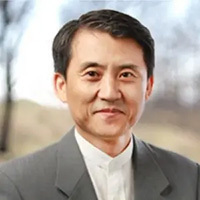
Director of Talbot Korean Masters Programs
Dr. Minsoo Sim received his doctorate (Ph.D.) in Kierkegaard Studies from Korea University and his Th.D. in Community Ecclesiology from Chongshin University before conducting postdoctoral (Post-Doc.) research at the Hebrew University of Jerusalem, Israel, on a government-funded fellowship. At the Institute for Jewish Identity at the Hebrew University, he researched the topic of Jewish religious community and identity, and as a result, established a theory of identity education based on biblical community ecclesiology and Christian spirituality. In addition to his long standing ecclesiological research and practice, he has continued his philosophical research and lectures on culture and education, for which he has received two Distinguished Lecture Awards from Korea University. For 25 years, he served as the director of the Pastoral Leadership Institute and senior vice pastor at the Global Mission Church, proving his capacity for practical ministry. He has served as a professor at Baekseok University's Theological Seminary and Midwestern Baptist Theological Seminary in the U.S. He is currently the director of the Korean Theology Program at Talbot School of Theology, where he is committed to cultivating the soil of conservative evangelicalism in Korea.
“The value of Christian higher education is self-evident, for it reflects the central content through which a Christian worldview and values can be concretely realized. The problem is that Christian institutions of higher education have often failed to fulfill their role.The reason lies in the fact that the foundation required to realize its value has not been properly established,” said Sim. “To fulfill its mission, Christian higher education must focus first on identifying promising individuals. It must begin with discovering people of calling. The next step is to nurture them so their character, spirituality, gifts and talents may flourish. Too often, Christian students struggle with finances and time, which is not their problem alone but the institution’s. Only by restoring this order can its value shine.”
_(1).jpg)
Associate Professor of Intercultural Studies
Dr. Peter T. Lee is a missiologist, intercultural researcher and theological educator who serves as Associate Professor of Intercultural Studies at Talbot School of Theology at Biola University. He is the author of Hybridizing Mission: Intercultural Social Dynamics among Christian Workers on Multicultural Teams in North Africa (Pickwick 2022). His life mission is to equip the global body of Christ to participate in God’s mission through learning, influencing and strategizing for the global church. He has worked with Operation Mobilization (OM) since 1997. Lee served for ten years in North Africa, during which he led a multicultural mission team, trained international business and development workers in cultural adaptation and intercultural skills, and lived out a life of witness to Christ among Muslims. He also coached and mentored mission workers and expatriate professionals during that time. A native of Seoul, Korea, Peter’s family immigrated to the US when he was fourteen. He made a lifetime commitment to cross-cultural missions when he attended Urbana '93 Mission Conference as a college student. He continues to serve in this calling at Biola. He is a graduate of Trinity Evangelical Divinity School (Ph.D. in intercultural studies) and Fuller Theological Seminary (MDiv).
“Christian higher education is critical in forming people who live out an integrated life for God. One of the greatest challenges to disciple-making in today’s world is compartmentalizing faith in everyday life. Rather than permeating everything we do as followers of Jesus, our faith becomes just one thing among others to which we give our time and effort. This false dichotomy between Christian and regular life gets amplified in missionary contexts,” said Lee. “Many new believers and missionaries struggle with integrating faith and life because they are used to isolating faith from life. What we do at Biola — integrating faith and learning, faith and work, and faith and life — is critical for the healthy growth of the global church.”
 Biola University
Biola University.jpg)
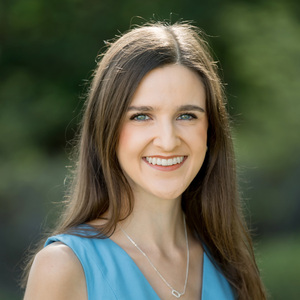
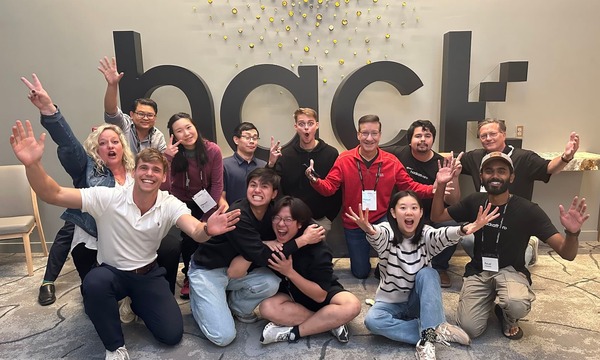
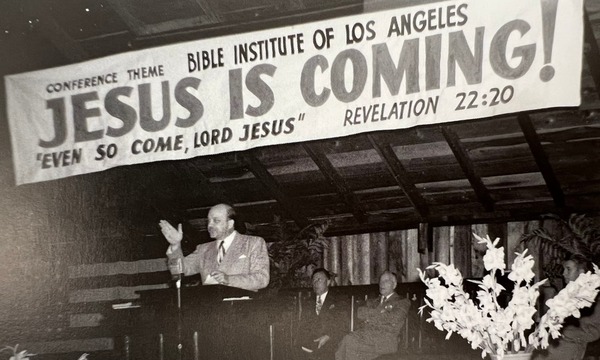

_(1)_(1).jpg)